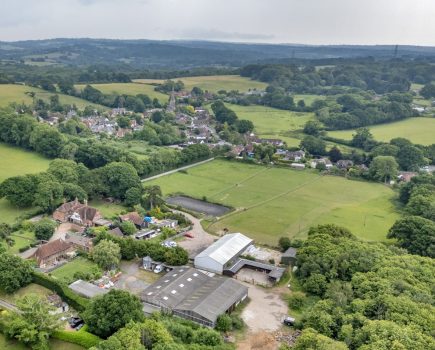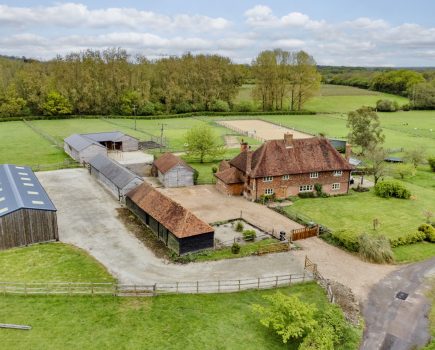Rowena Owen, co-founder of Bloom Stays holiday letting consultancy explains why tax changes in the spring budget should encourage farmers to develop and upgrade their holiday let opportunities.
The ‘D’ word – diversification – is the norm for landowners and farmers these days as, let’s be honest, most farms are nowadays a very long way from single income operations. Most have gone beyond the standard rental farm cottage with micro-breweries, music festivals, pizza restaurants, ‘glamping’, long-term lets, short-term lets and Tough Mudder courses now a common use of farm land.
But with all these potential opportunities for farmers, is rural holiday letting still a good option? Will the recent tax changes, as announced in the budget, put off farmers, developers and landowners here in the South East?
Looking back at the past few years, holiday letting in the UK since the pandemic has been a rollercoaster ride. As the demand for British breaks soared during 2020 and 2021, holiday makers rediscovered self-catering holidays and accommodation providers, from campsites to castles, responded by creating more beds in the market.
To try to address this as well as professionalise the holiday accommodation market, the spring budget laid out plans to abolish the furnished holiday lets (FHL) tax regime and the financial benefits associated with it. In other governmental moves, there are proposals to introduce a registration system for all new holiday lets coming to market and to require them to obtain planning permission for ‘change of use’ status.
For some, these changes spell doom and gloom but also promote a ‘jumping ship’ scenario, where those owners who want to avoid the scrutiny will likely sell up, which could push up prices where accommodation (especially rural) is sparse.
At Bloom Stays we don’t think these changes should provoke a change of heart amongst farmers, landowners and property developers who have long been champions of rural hospitality. Indeed, we think this new regulation will potentially improve the whole holiday letting industry for tourists, guests and owners, and while costs may rise initially, it won’t be at a hugely inflated rate. Indeed, in some cases, owners may find that one or two more bookings per year is enough to absorb some of these costs, which seems a reasonable price to pay.
The rural estates that come to us for advice on developing and then managing their holiday letting properties are also changing their focus in light of wider changes to the tourist market.
Our digitally enabled savvy customers are looking for great deals (no change there) but making up their minds and booking just hours, rather than weeks, ahead. They’re looking for experiences beyond bricks, mortar and beds, so if our holiday let houses can offer cinema rooms, large, eat-in kitchens, long tables for all their friends and family to dine around and outstanding décor and design features then we know that house will sell and sell.
Of course, swimming pools and tennis courts ace early bookings, but now so do hot tubs and ice baths, fully catered meals, electric vehicle chargers, lambing experiences and bikes delivered to the door. And don’t forget the dogs. Comfy beds, doggy ice creams and designated garden spaces are taking the lead for younger dog owners who prefer walkies to babies right now.
We’re also seeing mixed developments on the larger estates becoming more popular so that smaller but linked holiday let units (say five, two-bed properties) are developed alongside larger long-let houses, larger, venue-type spaces and even campsite facilities.
Great Higham Farm, outside Faversham, is a great example of a working fruit farm that has transformed its oast house, barns and stables into a fully flexible venue with accommodation, swimming pool, tennis courts and games rooms to house over 50 people. With our specialist help, this property has shaken off doubts on long-term financial stability while achieving outstanding occupancy rates.
As the summer approaches and, with a fair wind (and some reasonable sunshine) the South East gears up to welcome guests from all over the world, we’d like to see farmers and landowners with an interest in self-catering accommodation embrace this changed – and changing – market.
With so much going for the Garden of England, let’s tax ourselves with the question of how to maximise our assets and leave the Chancellor to his returns.







